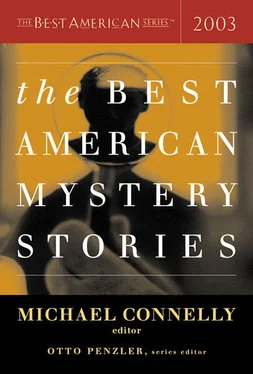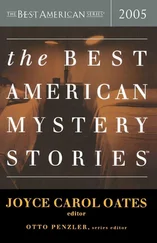Still, the idea of my livelihood intrigues people. They want details, the more exotic the better. I have overheard victims of pickpockets actually boast of their misfortune, having received a kind of vicarious thrill. But as with any job the extraordinary events occur infrequently. Between, there are protracted lulls, even monotony.
How then to dispassionately describe my vocation? Perhaps it would be easiest to recount three incidents which I readily recall. Each in its own way better describes what I do than anything I might otherwise tell.
The first incident concerns the things people carry. Most of what I find in wallets is routine: credit cards, photos, ticket stubs, receipts. If contents are a gauge, then the average life is remarkably mundane, even more so than mine. No wonder so many feel restless! Pockets also contain scads of things I never take — passports, lighters, pens. If I was a burglar, I might be a millionaire. People are surprisingly careless with keys.
But on occasion something catches me off-guard. In a wallet at Gare de Lyon only last week I discovered a small bag of heroin. Once at Musée Picasso I was flabbergasted to see I’d filched the ID card of an FBI agent. He was part of an American tour group. I left the museum immediately, having heard enough about those cowboys to give wide berth. Another time I reached into a pocket on an escalator in Les Halles and felt a gun. That provoked another well-timed retreat. I know how to calculate risks. Violence does not interest me.
Everything but cash goes into the nearest safe trash can. Moses twisted my ear that first day in Gare St. Lazare when I kept the prostitutes’ numbers and the condoms. “You think they’ll visit you in jail?” he asked. “Show some sense!” Disgusted, he took his cut of the money and threw the other things away. He had forgotten the carnal desires that surge through a young man day and night. Just think how many flames three hundred francs might quench! But I learned the lesson. The trash can gets all but the cash. It is an unfortunate policy, I know. People who lose their wallets are terribly inconvenienced. Replacing official papers and credit cards is a bother. All the same, it is an absolute necessity and part of the self-discipline. To permit sympathy to override this requisite is to invite disaster.
Of course, most in the trade these days keep the credit cards and fence them. For several years after Moses died, when credit cards came into common use, I did, too. But now such fraud has become big business. The people you meet in that line seem sleazy. They run in packs and can’t be trusted. Among those thieves, there is no honor. I avoid them. This may sound strange, but whenever thieves become organized they also become corrupt. Better to work alone.
The incident I have in mind occurred at the Centre Georges Pompidou several years ago. The curators had put together an exhibit of Brassai photographs that I admired. While leaving the gallery, I bumped into a man and reflexively picked his trousers pocket. I wasn’t even working that day. In the toilet I was disappointed to see less than twenty francs. If the pick had required effort it wouldn’t have been worth it. From the condition of the wallet, I gathered the man was either mindless of appearances or down on his luck.
What caused me to look further I am not sure. But tucked carefully into a corner of the wallet was a folded sheet of paper. I opened it. It was a letter written on hospital stationery and dated the previous year. I read it. It was from the man’s wife. Apparently she had written it just before dying. She did not say but it appeared she had a cancer. She had sent her husband a last love letter.
What she wrote was very moving. She described her love for him and said his affection had made life worth living. That same deep affection now made death manageable. She had endured great pain, that much seemed obvious. The final weeks had been a torment. She regretted to die so young. She worried over failings. There was so much left unaccomplished, so much she had postponed. Then there was the physical pain, to which she only alluded. Yet she spoke of when she first met her husband and remembered their first tender kiss. She mentioned a vacation they once took to a beach in Spain. She repeated her devoted affections in every paragraph. This dying woman even managed a private joke, adding, “Ha! You know I’m only kidding!”
Over and again the woman expressed concern for her husband. She urged him to be brave and reassured him that wherever she was after death, she would still be with him. He would never be alone. Their love, she wrote, would conquer death. A trite sentiment, perhaps, but in her letter it seemed plausible. Despite my own opinions on such matters, I found myself believing her. Who possesses the nerve to deny a dying young woman? If she had been my wife, I would have agreed to anything. Her signature was barely legible, a weak scrawl.
Upon finishing the letter, I was overcome with remorse. My hands began to tremble. I sat on the commode and gazed at her signature. Then I began to weep. I knew the letter must be returned to its owner. I carefully refolded it and placed it in my pocket.
What might have been simple became complicated. The man no longer lived at the Montparnasse address in the wallet. I posed as a friend and a neighbor gave me his new address near Gare de l’Est, an unsavory area. But he had moved from there, as well. I finally got another address from the concierge and found him in a fourth-floor walkup in the ghetto of Aubervilliers. With each move he had found cheaper quarters in a more dilapidated building. I supposed that since his wife’s death he had fallen into that kind of decline only an unimaginable grief might cause.
When he came to the door I explained myself in a rush of words. I mentioned finding the letter on a bus seat. It looked important, I said, and very personal. Beginning with the hospital, I had tracked him down. I began to perspire and my voice cracked. It was the profound emotion of that letter, no doubt, which I had somehow absorbed. For a moment I lost my head and even said that my own wife had died of cancer not long before. That wild statement was intended to establish motive for all my trouble, I suppose. Surely my efforts to find this man would appear peculiar and invite suspicion.
But he had no such reaction. Instead, he took the letter and broke down sobbing. He was a young man, poorly dressed. He held the paper to his chest. Thank you, thank you, thank you, he cried. He wailed and whimpered like a child. Between the deep sobs and groans, he wiped his nose on a coat sleeve.
I stood in the doorway feeling quite awkward with all the commotion. While the letter from his wife had touched me deeply, his shameless grief now struck me as pathetic. His wife — who was, after all, the one dying — had asked him to be brave. She would always be with him. Their love would conquer death. Yet there he was completely without courage, a broken man.
I saw then how thin he was, the wretched lines of despair eating deeply into his narrow face, and the gloomy disheveled apartment strewn with litter and smelling of decay.
Without saying a word more, I turned on my heel and left. I beat it double-time, taking the stairs three at a time. I needed some fresh air.
Afterward, I realized why my policy of dumping everything into the trash is a good one. What people carry is their own concern.
As you might expect, I do much of my work on the Métro. A salesman has his territory, I have mine, and any territory has its downside.
The city underground is nothing like the one above. Without question, the Métro is a cheerless place. The trains burrow through the tunnels like huge distended worms, their bellies full of commuters, disgorging and engorging the contents at each stop. The people remain silent and disengaged, their sensibilities dulled by the crowds, the noise, the constant motion. The place is dark and humid, a world of hollow shadows and impersonal fatigue, and it smells like a sewer. The boys who spend their days there hawking newspapers resemble rats. In those pinched faces the pale eyes peer furtive and sly. These repulsive creatures scurry from car to car in search of crumbs. The passengers lift their feet and avoid them.
Читать дальше












